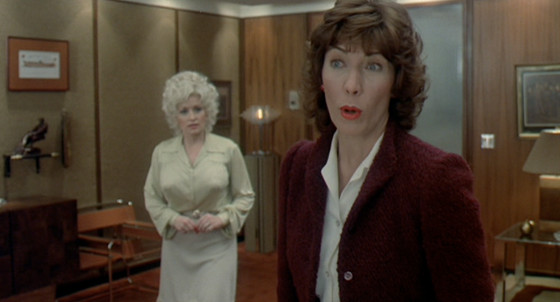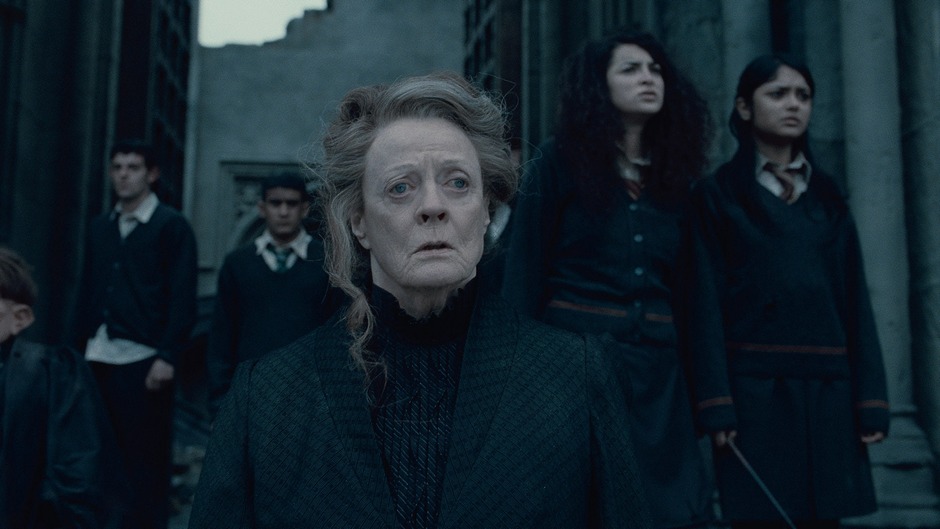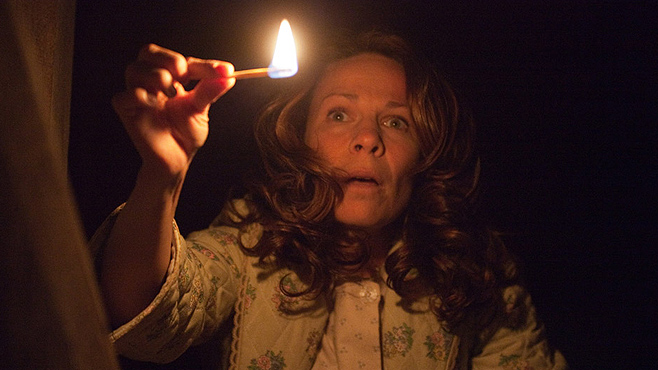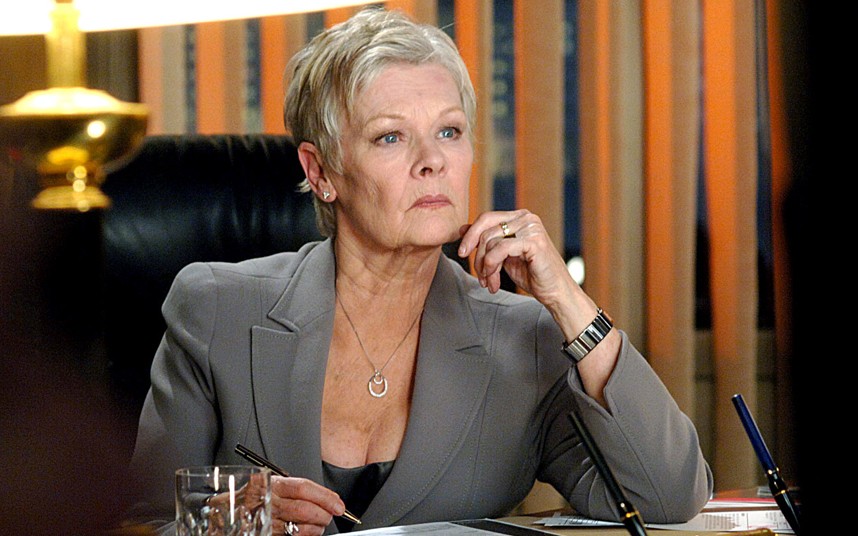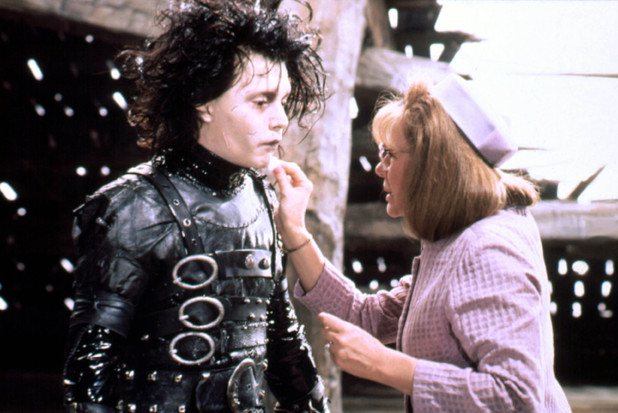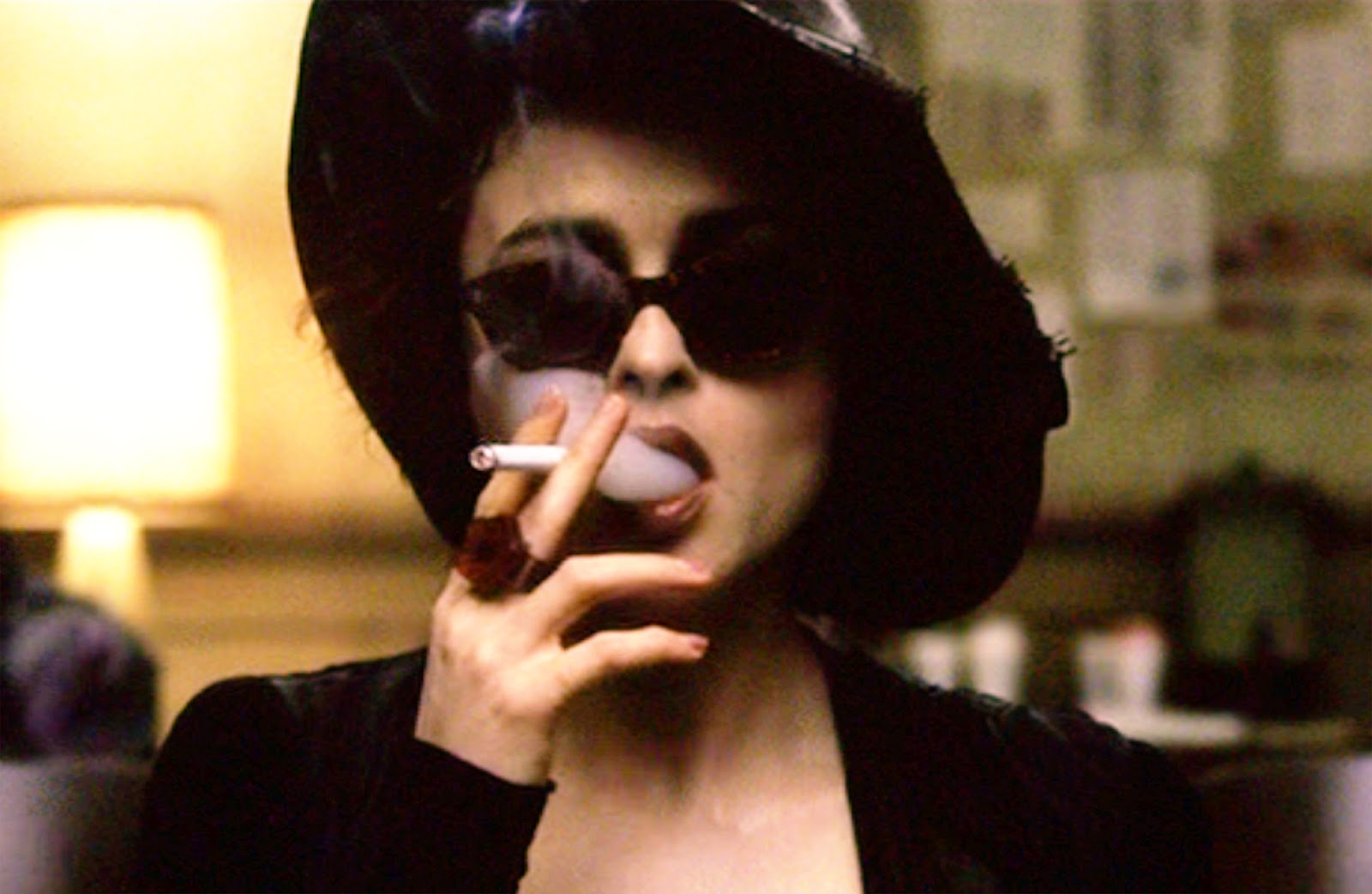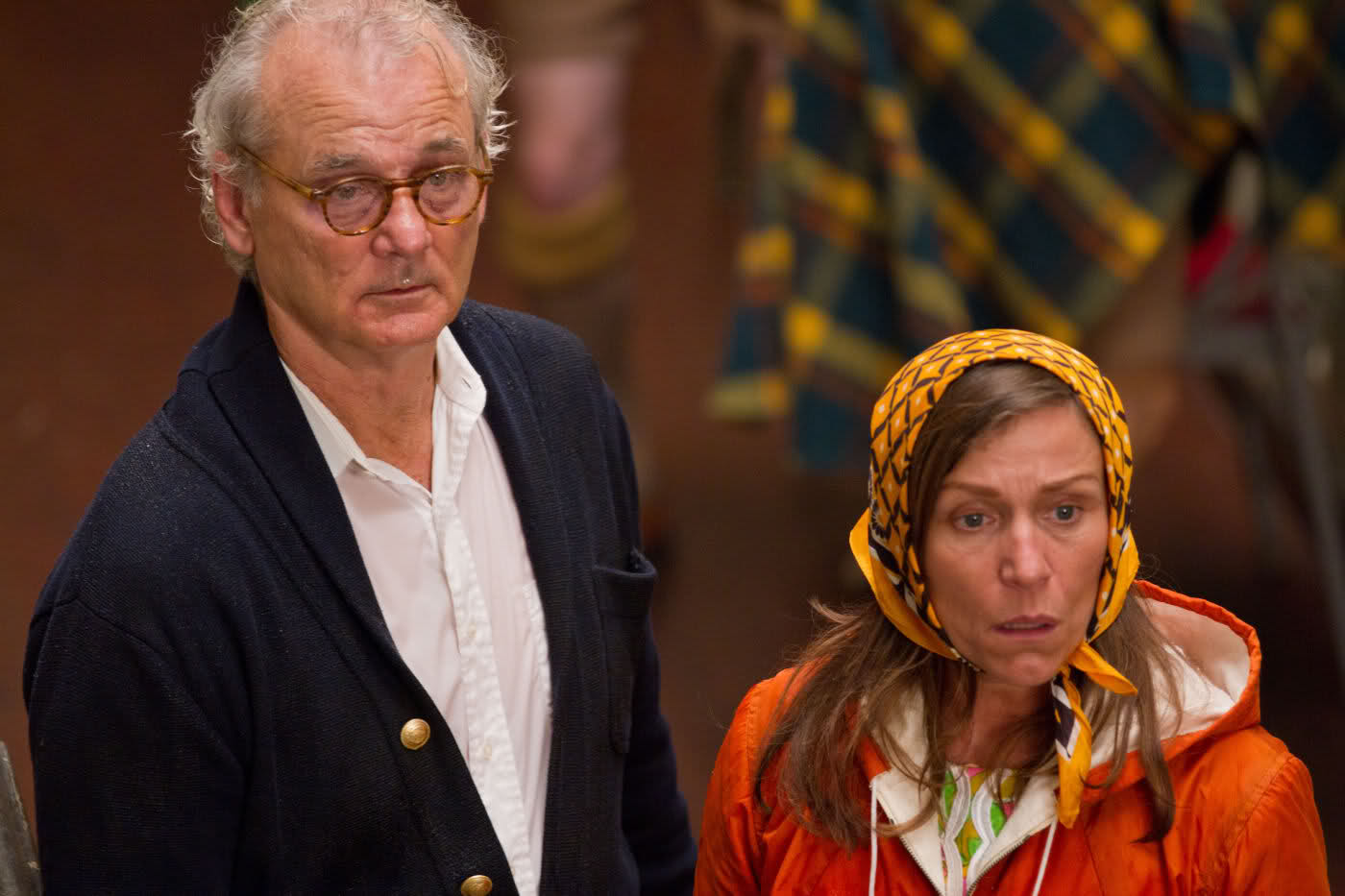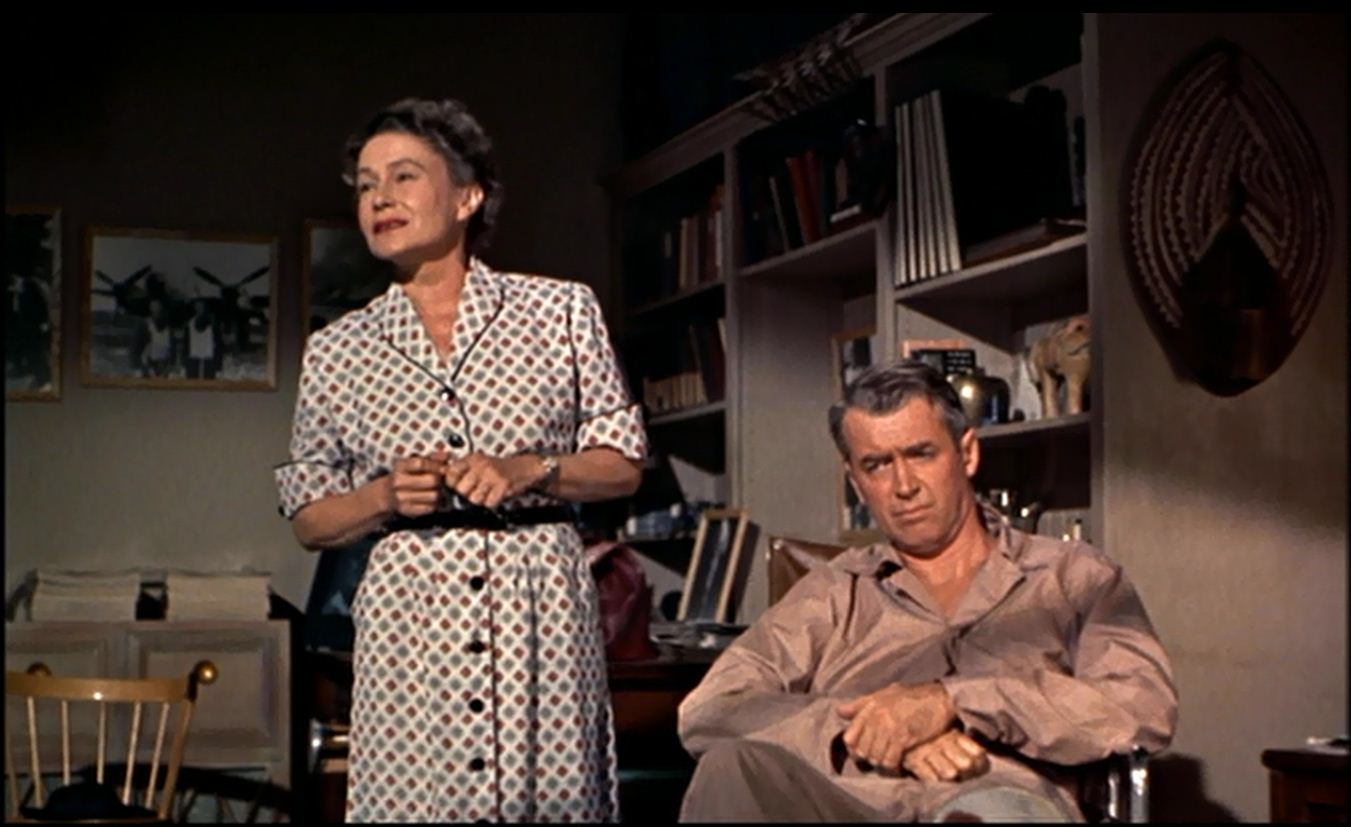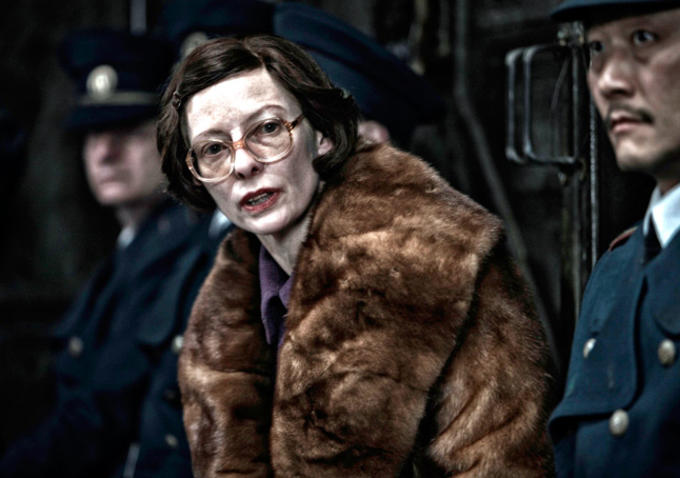10. Lily Tomlin
Like Whoopi Goldberg, Lily Tomlin got her start as a combination stand-up and performance artist, creating a wide array of extremely human caricatures. These broad characters made it all the more striking when she made her film debut in Robert Altman’s Nashville playing a solidly realistic housewife/gospel singer who in a monumental moment of stillness decides to give adultery a chance.
Thus began a career playing women who radiated intelligence while striking out at the status quo. Whether as a secretary who rises up a sexist boss in 9 to 5, an aging hippy living off the grid in Flirting With Disaster, or a ghost inhabiting half of Steve Martin in All of Me, Tomlin has made a career proving that one should never underestimate a woman, particularly if that woman is Lily Tomlin.
9. Maggie Smith
Put aside the acting awards, the decades of stage work, the recent television successes, the honorary British titles, the unshakable demeanor and abilities, the fact she can perform everyone from Shakespeare to Neil Simon, and the fact that she was good enough to intimidate (and refused to be intimidated by) Laurence Olivier and you will find an actress whose career is a rarity. She is a star that aged into a character actress.
When she jumped from the British stage into British films she went straight to romantic leads, before her first iconic role starring in The Prime of Miss Jean Brodie. Her career has been bookended by two iconic teachers: the pro-fascist Miss Jean Brodie for which she won her first Oscar, and the anti-fascist Mistress Minerva McGonagall in the Harry Potter series for which she won a certain immortality.
8. Lili Taylor
If Hollywood was a high school, at the class reunions Julia and Meg and all the other popular girls from the 90’s would drunkenly take Lili Taylor aside and say, “I wanted to be like you, but I was afraid. I mean, you were so cool.” And she was. Taylor may not have been on the prom court, but out on the festival circuit, she was queen, getting some of the best female leads of the era. She was a reluctant vampire grad student in The Addiction, the radical feminist/attempted assassin Valerie Solanas in I Shot Andy Warhol, a saint in training in Household Saints, and River Phoenix’s unlikely love interest in Dogfight.
She doesn’t come out to play as much as she used to, but when she does she brings with her a calming assurance that the audience is in good hands. And when the audience should not be calmly assured, as in the 2013 horror film The Conjuring, seeing her terrified assures us that it is more than ok to be scared ourselves.
7. Judy Davis
Looking at Judy Davis’s run of performances in the early 1990’s– the forever-doomed wife in Naked Lunch, the southern ghost writer of Barton Fink, the divorcee of Husbands and Wives, the combative wife of The Ref- you would be forgiven for thinking she was one of the best American actresses of her era. She wasn’t though. She was one of the best English actresses of her era because of her earlier performances as the writer George Sand in Impromptu and as Adela in A Passage to India. But, she wasn’t. She’s in fact from Australia, where she first gained prominence in the 1979 film My Brilliant Career.
It takes more to be a great actress than the ability to fake a number of accents. It helps to have a formidable presence, and to know how to hide a character’s frailties behind a mountain of defenses, and to be able to switch your eyes from warm to cruel in an instant. It helps to be Judy Davis.
6. Judi Dench
After 40 years of dominating the London stage, Judi Dench finally came to world-wide prominence at the age of 60 playing M in Goldeneye, bringing a much-needed strong, fully-clothed female presence to the laddish James Bond franchise.
She was made for playing authority figures, up to and including royalty, demonstrated when she portrayed Elizabeth I in Shakespeare in Love and Lady Catherine in Pride and Prejudice. She is so good at playing the powerful that it came as a surprise when she set aside the regal bearing to play uncommon commoners as when she was cast as Philomena Lee, a middle class woman devoid of pretensions and full of grace. Dame Judi turns 80 this year and shows little evidence of slowing down.
5. Dianne Wiest
Dianne Wiest acts with little or no affectation delivering solid, believable characters every single time. Her women are usually caring, busy and slightly worried, often mothers. The effortless skill is there in her first major role as a preacher’s wife in Footloose. It’s there in her grieving mother in Rabbit Hole. And The Lost Boys, and The Birdcage. It seems as though any actress could play these roles, and they probably could, but few could play them as well.
Even when she plays a character outside her type she is a creature of restraint, as in Woody Allen’s Hannah and Her Sisters, playing Holly, a recovering drug addict. Her recovery is rarely mentioned, but her every movements subtly conveys the everyday struggle of her life.
This isn’t to say she can’t go big. In Allen’s Bullets Over Broadway she is a drunken grande dame of the theater who seduces a mediocre playwright. For this she received her second best supporting actress Oscar, one of the 13 separate acting awards she received for playing Helen, a role that any decent actress could play, but few could play better.
4. Helena Bonham-Carter
To those too young to remember, it may seem that Helena Bonham-Carter sprang fully formed as the incarnation of Tim Burton’s imagination, his Pygmalion statue turned to life. Since 2001, the two have served as co-muses for each other, her appearing in eight of his phantasmagorias, him providing an outlet for her special kind of dark, eccentric and sexy intensities. There was a time, though, when she was known for playing characters from the pages of Shakespeare, Henry James, E.M. Forster, and Mary Shelley. In each of these roles there was a vital spark fighting against the constraints and rules of the British classes.
She can still be found bringing the weird to literary roles she plays outside of Burton’s films including Marla in Fight Club, Mme. Thenardier in Les Miserables, Miss Havisham in Great Expectations, and Bellatrix LeStrange in the Harry Potter series. When necessary she can turn off the quirk for when she is called in to play British queens, as she has done on at least three occasions. Four if you count the Queen of Hearts in Burton’s Alice in Wonderland.
3. Frances McDormand
Frances McDormand is rarely the lead. It just always seems like she is. Yes, she received any number of best actress awards for playing Marge Gunderson in Fargo, but she was not the lead, just one member of an ensemble. Since her film debut in Blood Simple, McDormand has been happy being one part of the whole. Throughout her long and varied career in film–Almost Famous, Short Cuts, The Man Who Wasn’t There, Moonrise Kingdom, Laurel Canyon–she is the definition of a supporting actor, because she is always there to help her co-starts look great.
One might call her the team captain of her casts because she is always focused, reliable, one of the best players on the squad, but always thinking about the game, not her own glory. She has garnered a near-universal respect, despite the best efforts of her humility.
2. Thelma Ritter
Range does not make a great actor, but rather how well an actor plays within their range. Thelma Ritter played her small range like a virtuoso. Her resume would never know the words Martha Washington or Ophelia, but if you needed a tough, little cynical New Yorker who just might be the voice of reason, she was the best actress for the job. This in no way meant she just came in and did “New Yawk” shtick. She delivered fully realized characters displaying a range of emotional truth.
An actor’s range is not only the different types they can play, but also the different moods. This is where Ritter proved her worth. She could play comedy [Pillow Talk, 1959], drama [Birdman of Alcatraz, 1962], thriller [Pickup On South Street, 1953], or all three at the same time [All About Eve, 1950]. If one was to judge a character actor by their accolades, she might be counted as the greatest of all time, receiving a record 6 best supporting actress nominations (the nomination of the character actress) and no wins (the fate of most character actors) in her brief film career.
1. …and the reigning queen: Tilda Swinton
Tilda Swinton has three key qualities that make a great character actress. First, she has a distinct look, often described as Bowie-esque (partly due to being pale and lanky, but mostly because she looks like mid-period David Bowie). Such distinction makes her seem like the only person who can be chosen for certain roles. It would have seemed criminal to cast anyone but her as the White Witch in The Chronicles of Narnia. And would Orlando even have been possible without Swinton to play the sometimes male/sometimes female/always youthful hero?
Second, she has range. A distinct look will usually lead to typecasting, but she can jump back and forth between hard realism (a mother hiding her son’s crime in The Deep End, a biker chick in Broken Flowers) and hardly realistic like those mentioned in the paragraph above.
Third, she is a great actress who takes on risky, sometimes even scary projects (Julia, We Need to Talk About Kevin). Add to that her following the usual character actress pattern of being a lead in indies and a supporting player in Hollywood, her winning a best supporting actress Oscar, her fantastic name and her British accent, and you have pretty much everything you’re looking for in a character actress.
This last year, she fulfilled the destiny written on her high, pale cheekbones by finally playing a vampire in The Only Lovers Left Alive. To clear the palette after all that sexiness she delivered a pair of grotesques with the ancient Madame D in The Grand Budapest Hotel and the buck-dentured, thick-prescriptioned authoritarian in Snowpiercer. From subtle to broad, from comic to dour, multi-faceted and multi-accented, Tilda Swinton has nearly all it takes to be a great character actress. The only thing she lacks is the ability to blend in to a crowd. Well, no one’s perfect.
Author Bio: Craig Johnson is a writer and improv comedian based in Madison, WI, USA. He co-hosts the movie review show “Welcome to the Basement” which can be found right here on the internet (www.welcometothebasementshow.com). He was also part of the ensemble of the internet series “Chad Vader: Day Shift Manager.” In his spare time he likes to sleep.
